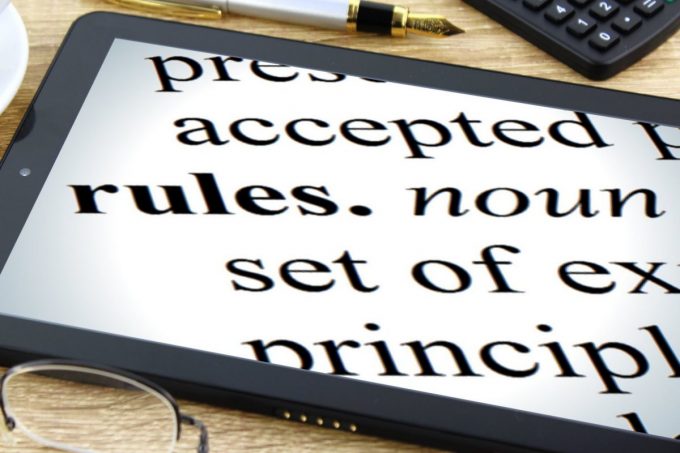
Maximising Textual Reservations Sales
In-app messaging, chat, and email: Ensure your team is properly trained on best habits for textual selling via online and digital channels
As is the accommodation industry in general, resorts and vacation rental companies are well aware that direct bookings not only help hold down the “costs of acquisition,” but also increase our guest loyalty to our brands and not to a distribution channel partner.
Therefore, it is certainly important to train your team to sell via the voice channel.
However, it is also essential to ensure that your team is properly trained on the best habits for textual selling via online and digital channels. For one, there is often an interplay of the voice and online bookings. Secondly, many guests first reach out by way of the written word, which still distinctly shows intent.
Here are some of the many textual selling opportunities:
- Turn “I just have a quick question” inquiries that come in by direct email into confirmed bookings.
- Go beyond answering questions on OTA platforms (Airbnb and VRBO); instead, convince senders to pick your property off the long list they see online.
- Reply to questions and inquiries that come in by chat.
- Use personalized email as a proactive retargeting tool for voice inquiries.
Some readers may be asking, “Is it really worth the effort to focus on textual inquiries?” If so, you may want to first consider the hidden costs of getting prospective guests to initiate a textual inquiry. If the email or chat message arrives directly, odds are that the sender found you by way of an internet search and website visitors.
Therefore, costs of getting written inquiries may include SEO (organic & paid), website development, maintenance and hosting costs, and email campaign fees. If the inquiry is coming in via an OTA, then senders clearly have a list of other options, so personalized responses can help “sell” the sender of the message.
I highly recommend that marketing and operations leaders take time to review a random selection of the messages that are coming in by way of the various methods listed above. Certainly, one will see numerous sales inquiries that are directly stated as such, “I’m looking to reserve…What is the next step?”
Yet if you look even closer, it is easy to recognize that many leads are disguised as: “I just have a quick question about…”
- Check-in times
- Pandemic-era questions
- Pets
- Parking
- Bedding
Consider this: why would prospective guests be asking these questions if they did not have the intent to buy?
If you take time to also look at the messages your staff is sending back in response to these types of questions, you will probably find that too many only send back a brief reply that simply answers what was asked. Similarly, if you look at the responses being sent to directly-stated reservations sales inquiries, you will probably find that your team simply replies with a template, and often not even the one from your list of templates that best fits the nature of the inquiry.
If this month’s blog topic is hitting home so far, here are some training tips from our new KTN sales training program called Maximizing Sales Through Textual Communications:
- When senders simply type over a quick question in a chat, email, or in-app message, after answering the question, be sure to always add remarks such as: “Let us know what other questions you have or what else we can do on our end to host you…”
- Introduce yourself as a “real person,” not an anonymous sender. If you are on-site or in-house, be sure to mention that. When communicating by way of direct emails, include headshots, direct phone lines in auto-signatures.
- It is fine to use email templates, but provide your team with a selection so they can select the one that best fits the inquiry.
- Start emails by paraphrasing, restating, and commenting on whatever you have learned from the sender’s written inquiry. Many senders self-reveal quite a few details in the comments/remarks boxes, so use this to your advantage. The rest of the responsive message can be a template.
- For inquiries relating to booking larger groups, longer stays, and/or higher rated accommodations, offer to set a time to talk by phone or Zoom. Include a link to an online scheduling app, making it easy for the sender to set a time to talk.
- For inquiries that represent significant enough potential revenue, such as long stays, multiple accommodations, or top-tier inventory, include a short, personalized video email message in which you speak directly to the sender.
- Again, for higher-revenue leads, leave the next step on your to-do list by saying “I will be following up with you in a few days to see what questions you have.”
- For OTA’s and group booking platforms that restrict replies to being in-app by not revealing the sender’s email, create a trace system to help salespeople track leads for follow-up within the platform.
- End with a personalized welcoming phrase such as “Let us know what else we can do on our end to secure the opportunity to welcome you…”
- Regarding the voice channel…when callers are interested, but not quite ready to book, always offer to send a follow-up email with your direct contact information. Put it on your to-do list to follow up at least two additional times.
- When chat senders have a quick question, it is fine to simply answer via chat. However, when they start to ask for recommendations or ask questions that indicate they are interested in booking, offer to call them right now to assist. You will be surprised how many say “Sure!”
As previously published in VRMA Arrivals
Doug Kennedy is President of the Kennedy Training Network
Doug Kennedy is president of the Kennedy Training Network. Doug’s articles are originally published in www.HotelNewsNow.com” and AccomNews shares them with permission.
Doug is a leading provider of hotel sales, guest service, reservations, and front desk training programs and telephone mystery shopping services for the lodging and hospitality industry. He continues to be a fixture on the industry’s conference circuit for hotel companies, brands and associations. Since 1996, Doug’s monthly training articles have been published worldwide, making him one of the most widely read hospitality industry authorities.







